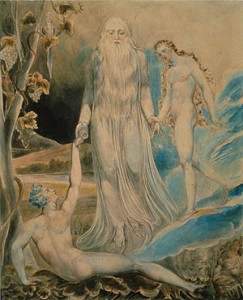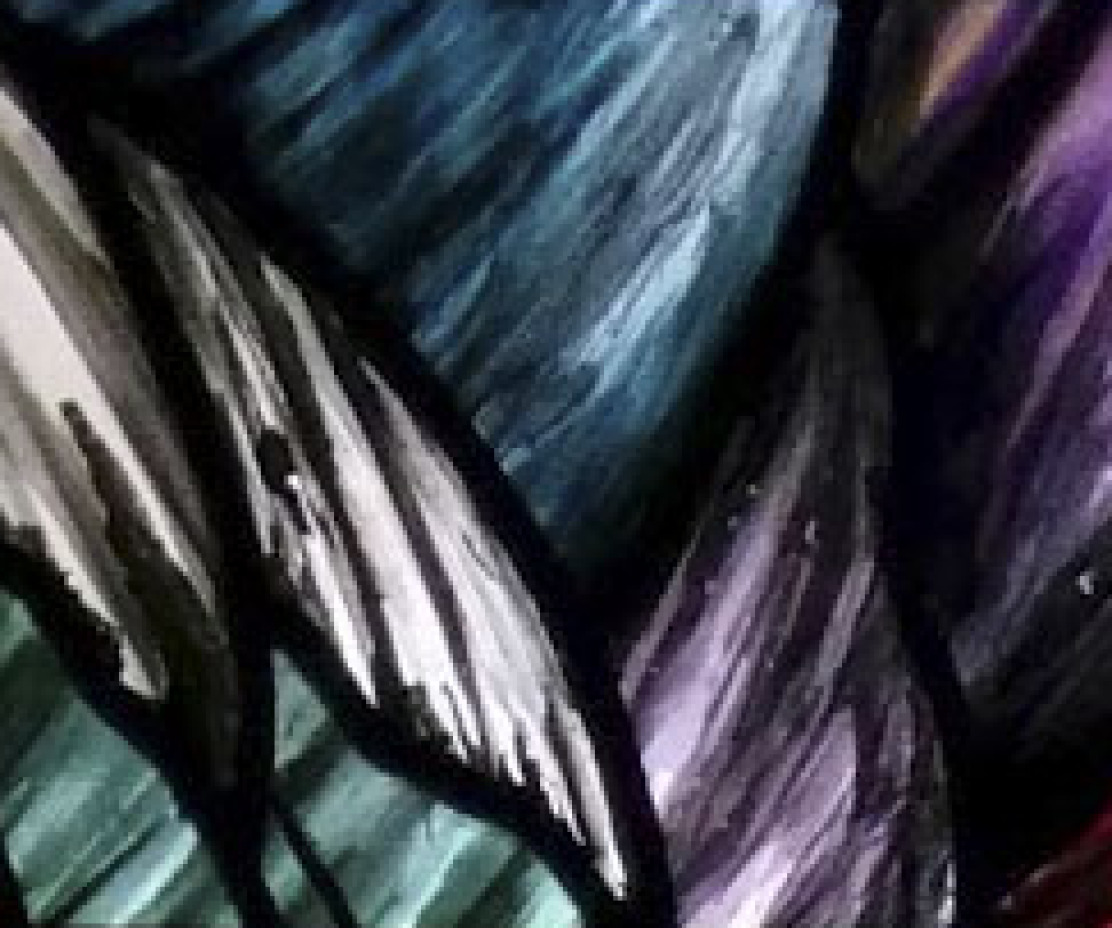In the day that the Lord God made the earth and the heavens, when no plant of the field was yet in the earth and no herb of the field had yet sprung up—for the Lord God had not caused it to rain upon the earth, and there was no one to till the ground; but a stream would rise from the earth, and water the whole face of the ground— then the Lord God formed man from the dust of the ground, and breathed into his nostrils the breath of life; and the man became a living being. And the Lord God planted a garden in Eden, in the east; and there he put the man whom he had formed. Out of the ground the Lord God made to grow every tree that is pleasant to the sight and good for food, the tree of life also in the midst of the garden, and the tree of the knowledge of good and evil.
Then the Lord God said, ‘It is not good that the man should be alone; I will make him a helper as his partner.’ So out of the ground the LordGod formed every animal of the field and every bird of the air, and brought them to the man to see what he would call them; and whatever the man called each living creature, that was its name. The man gave names to all cattle, and to the birds of the air, and to every animal of the field; but for the man there was not found a helper as his partner.So the Lord God caused a deep sleep to fall upon the man, and he slept; then he took one of his ribs and closed up its place with flesh.And the rib that the Lord God had taken from the man he made into a woman and brought her to the man. Then the man said,
‘This at last is bone of my bones
and flesh of my flesh;
this one shall be called Woman,
for out of Man this one was taken.’
Therefore a man leaves his father and his mother and clings to his wife, and they become one flesh. And the man and his wife were both naked, and were not ashamed.A river flows out of Eden to water the garden, and from there it divides and becomes four branches. The name of the first is Pishon; it is the one that flows around the whole land of Havilah, where there is gold;and the gold of that land is good; bdellium and onyx stone are there.The name of the second river is Gihon; it is the one that flows around the whole land of Cush. The name of the third river is Tigris, which flows east of Assyria. And the fourth river is the Euphrates.
The Lord God took the man and put him in the garden of Eden to till it and keep it. And the Lord God commanded the man, ‘You may freely eat of every tree of the garden; but of the tree of the knowledge of good and evil you shall not eat, for in the day that you eat of it you shall die.’
This passage comes from the J source, which is the oldest source in the Pentateuch, dating to approximately 950 BCE.
This is a very interesting passage for many reasons; the most notable is that it offers another account of creation. It doesn’t just pick the story up from where we left off in Genesis 1, where God was resting after speaking creation into existence.
In this passage God had already created the heavens and the earth, and as of yet He hasn’t created any kind of plant, nor has He caused it to rain, since there was little point since there was no one to till the ground. Before plant and before animal the first thing God formed from the dust of the earth was man. This is obviously very different from the first account of creation.
Then the Lord God planted a garden and placed man in it. God made every tree grow out of the ground including the tree of life and the tree of the knowledge of good and evil. God then commanded man to till the ground but not to eat of the tree of Knowledge of good and evil.
 God then creates the animals for man, but man still needs a partner. So God caused man to fall asleep and then He operates on him, removing a rib and using that rib to create woman.
God then creates the animals for man, but man still needs a partner. So God caused man to fall asleep and then He operates on him, removing a rib and using that rib to create woman.
Aside from this being the second account of creation, notice the differences. First the order of creation is different. Man is created first and not last. Notice also that God doesn’t speak things into existence, He plants, He operates, He breathes. God is depicted as being anthropomorphic.
This is very different from the creator God of Genesis 1. This is a tangible God, a God that walks about in the Garden of Eden. This is a physical God, a God of substance. And I think the type of God that Christ called Abba.
And finally in verse 24 there is a little treaty about how man should cling to his wife after leaving his mother and father. Now this is really out of place. How can man leave his mother and father if there is only one man and one woman? There are no parents to leave yet.
Definitely odd indeed, unless this story is being used to explain the origins of the family unit, of sexuality and of an agrarian lifestyle?
All of that aside, I find this story striking for the obvious reason; there are two different accounts of creation. And since both are part of Holy Scripture and they seem to contradict each other, then perhaps we are not to accept these stories as factual or scientific and instead we are to see them as mythical stories about God that tell us a truth. Now whether that is a theological truth, metaphorical truth, allegorical truth, revelatory truth, etc. requires a lifetime of study, which I would certainly encourage.
But this opens us to an interesting thought and a debate that is hotly contested. Is the bible inherent truth? Is it historical? Is it an accurate account of the creation of the world, science and big bang aside?
We are two pages in, two chapters into our exploration of sacred scripture and already the looming question as presented itself…if some of the bible is just stories that tell a truth, how do we distinguish from factual truth and the other forms of truth?
I wish I had an answer right now, but alas I don’t. Hopefully scripture will glean us an answer as we continue…

Stories that tell a truth indeed. I like that interpretation, and I appreciate the manner in which it was presented.